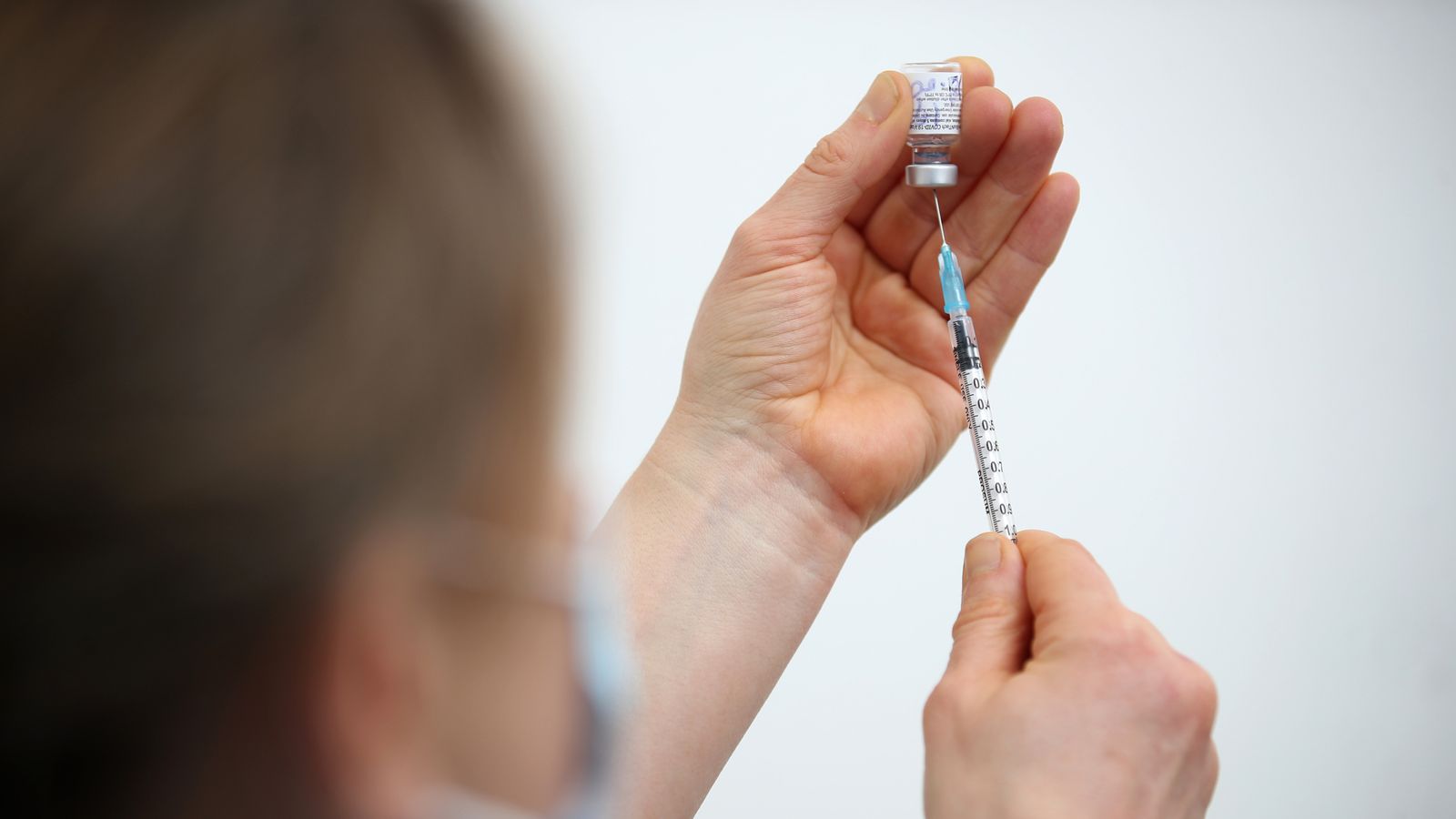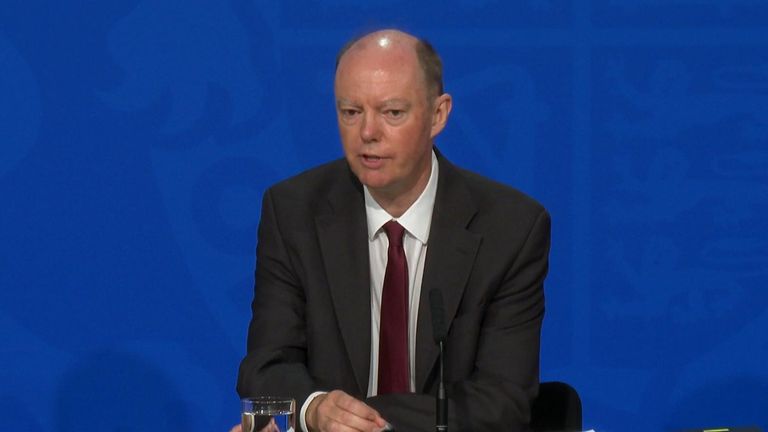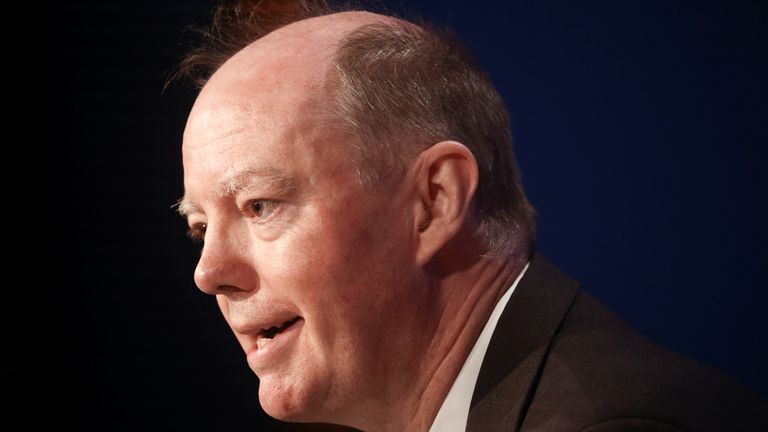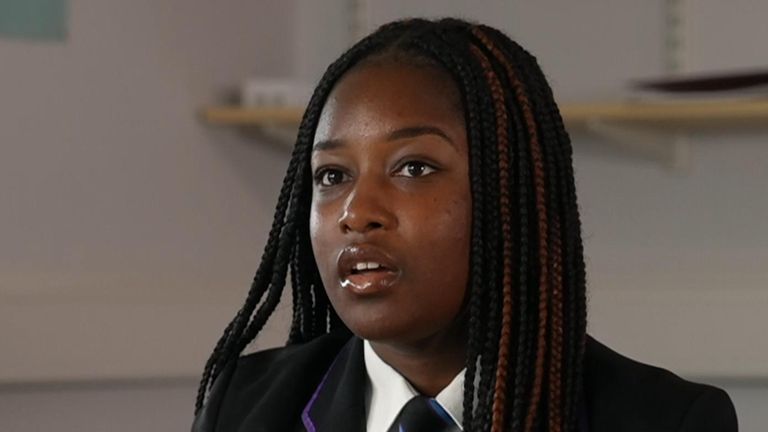The government has accepted the recommendation from the UK’s chief medical officers that children aged 12 to 15 should be offered a first dose of the Pfizer/BioNTech coronavirus vaccine and invitations will start being sent out next week.
Making the announcement in the Commons, Vaccines Minister Nadhim Zahawi said: “We will now move with the same sense of urgency we’ve had at every point in our vaccination programme.”
Health Secretary Sajid Javid said: “I have accepted the recommendation from the Chief Medical Officers to expand vaccination to those aged 12 to 15 – protecting young people from catching COVID-19, reducing transmission in schools and keeping pupils in the classroom.
“I am very grateful for the expert advice I have received from the Joint Committee on Vaccination and Immunisation and UK Chief Medical Officers.”
It comes after the chief medical officers said offering jabs to 12 to 15-year-olds would be a “useful tool” in reducing disruption to their education.
In their advice to the government, they said they were making the recommendation on “public health grounds” and it was “likely vaccination will help reduce transmission of COVID-19 in schools”.
The move means around three million children will now be eligible for the jab, which is expected to be administered through schools.
The consent of parents, guardians and carers will be sought prior to vaccination, but the Health Secretary told Sky News last week that children would get the “final say” over whether or not they get a jab.
Addressing this in his statement to MPs, Mr Zahawi said: “In the rare event that there is a situation a parent does not consent but the child or the teenager wants to have the vaccine, then there is a process by which the school age vaccination clinician will bring initially the parent and the child to see whether they can reach consensus and if not, if the child is deemed to be competent, then the vaccination will take place.”
The minister told the Commons that vaccines “are our best defence against this virus”.
“Our jabs have already prevented over 112,000 deaths, more than 143,000 hospitalisations and over 24 million infections,” he said.
“They have built a vast wall of defence for the British people.”
He added that there is a “comprehensive” surveillance strategy in place to monitor the safety of the COVID vaccines and continued: “It is important to remember that our teenagers have shown great public spirit at every point in this pandemic. They have stuck to the rules so that lives could be saved and people kept safe.
“They have been some of the most enthusiastic proponents of vaccines. This is at least in part because they have experienced the damage that comes with outbreaks of COVID-19.”
Labour’s shadow health secretary Jonathan Ashworth said the party backed the government’s approach, but urged ministers to provide as much information to parents as they can.
He also posed a series of questions to the vaccines minister, including whether parental consent would be needed and whether the jabs would be administered through an existing NHS programme for other vaccines for children.
Mr Zahawi said in response that the NHS was “incredibly efficient and well equipped” in providing inoculations to children already and that an existing programme which visits schools would be used for the COVID jabs.
But Tory MP Dr Caroline Johnson said she was not “comfortable” with vaccinating teenagers to avoid “educational disruption”, while former party leader Sir Iain Duncan Smith warned of the risk of “family disputes” over whether children should take up the offer of a jab.
Conservative MP and former minister Steve Baker urged the government to guarantee that “a child’s ability to receive an education equally with their peers will never be linked to their vaccination status”.
Mr Zahawi said in response: “That will not be used in any way. The whole purpose of this is to accept the clinical advice and protect children.”
The recommendation from the CMOs followed a decision from the Joint Committee on Vaccination and Immunisation not to recommend mass vaccination of 12 to 15-year-olds on health grounds alone.
Explaining the rationale for their decision, the JCVI said the virus poses a very low risk to healthy children and inoculating them would only provide a marginal benefit.
But they did say that other issues, such as education, should be taken into account and considered by the CMOs in making their final decision.
Speaking earlier at a Downing Street news conference, the JCVI’s Professor Wei Shin Lim said there was “no conflict” between the stances of the JCVI and the CMOs, adding that the JCVI had looked at the question from a health perspective.
Mr Zahawi said further guidance would be sought from the JCVI before any decision is made on whether to offer second doses.
Speaking on the eve of Prime Minister Boris Johnson setting out his winter plan to manage COVID in the months to come, the vaccines minister told MPs that the government wanted to deliver an “ambitious” programme of booster jabs.



